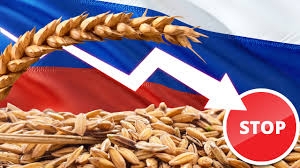Since June 1, the European Union has increased the duty on grain imports from the Russian Federation and Belarus

On May 30, the Council of the EU adopted a resolution to increase the customs duty on the import of grain and oil crops, their processing products, as well as granulated pulp and dried peas from the Russian Federation and Belarus to a level that will actually stop their supply. Currently, import duties on these goods are absent or very low.
The resolution, which will enter into force on June 1, will also deprive the specified goods of access to EU tariff quotas, but will not affect their transit through the EU.
"Such measures will prevent the destabilization of the grain market in the EU, stop supplies from the Russian Federation of grain stolen from Ukraine, reduce Russian revenues to finance the war, and also demonstrate stable support for Ukraine," - believes the Minister of Finance of Belgium, Vincent Van Peteghem.
Russian experts immediately declared that the decision of the Council of the EU will not affect exports from the Russian Federation, while European buyers will receive raw materials from other countries at a much higher price.
According to IKAR, the export of grain crops (without legumes) to EU countries this season will amount to only 1.5 million tons. The main buyers will be Italy, Spain and Greece. The agency considers the only negative of the new decision to be an increase in the duty on durum wheat, the main volume of which was bought by Italy, since now it will be necessary to look for new sales markets.
"The increase in customs duties on oil crops and products of their processing, in particular, rapeseed meal, will be felt for the Russian Federation, but it will hit the European livestock farmers who buy this meal the most. In general, the Russian Federation exports to the EU a fairly high share of the produced rapeseed meal and linseed oil. However, it is lower than the volume of imports of these products by EU countries. Therefore, the increase in customs duties on Russian products will have a negative impact on the EU to a greater extent than on the Russian Federation," IKAR believes.


